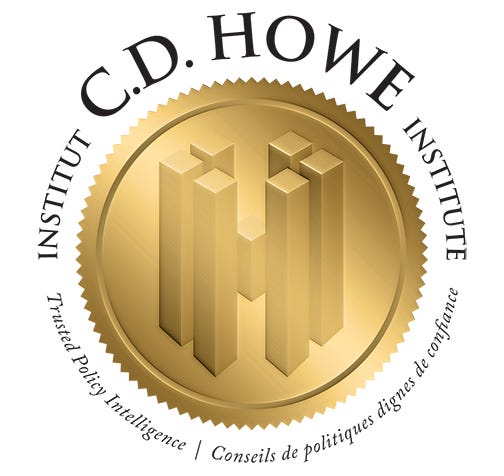Ph.D. Writer is loyal to his Big Government benefactor.
It should come as no surprise that someone who earned his Ph.D. and other degrees from government universities would expect government to play a central role in Economic planning.
The CD Howe Elites
Charles Plant, PhD CPA CA is Founder of the Narwhal Project, and author of the study https://go.pardot.com/e/230862/omings-growing-large-firms-and/372wnj/668152428?h=J3GpmvSJSD0upQnN8EFaefO8mBxo3hxiyT_iDKnLZBQ.
This CD Howe post “Canadian Communities Should Focus More on Marketing and Sales Tactics to Grow.” features recommendations from Plant’s study. His LinkedIn profile reveals an academic whose employment history has been predominantly within public sector or not-for-profit organizations such as registered charities. I wonder why the C.D.Howe elites think he is qualified to advice entrepreneurial private sector companies on their growth strategies when he possesses no personal track record of success in growing such companies.
Idioms like the one above are a form of “folk wisdom”, and they often carry more than just a grain of truth. Consultants like Plant are academics who teach what they have learned from their studies. However, anyone who has been part of building a significant business may find his advice to be “easier said that done” and “coming from a place of naïveté”. Between 2009 and 2016, I played a vital role as Director of the Talent Supply Chain in building an international business spanning the USA, Mexico, Brazil and France from our Toronto HQ. From revenues of under $300,000 USD in fiscal year 2009, we topped $20,000,000 by 2016 with over 60 employees working out of new international offices.
Too much faith in Government.
Plant made some suggestions that revealed his misguided faith in Government as a helpful ally to support the growth of business enterprises. From the report…
The author finds that the Canadian government focuses too much on programs related to research and innovation, and not enough on the lack of resources, experience, and talent for commercialization. “This underweighting is keeping our firms smaller and growing slower,” he says. “Essentially, the issue is a lack of managerial know-how. Existing and new programs could shift their alignment towards the marketing and sales development needed to grow our young companies in Canada.”
From my personal experience, governments are deterrents to growth, not catalysts. Yet Plant goes on to suggest:
To address the lack of improvement in productivity, the author recommends specific enhancements aimed at improving marketing and sales. For example, the Government of Canada would benefit from developing comprehensive objectives to measure outcomes, which can help create a clearer picture of productivity and large venture growth. Governments may also consider developing and funding programs that cater to students of the arts and humanities that promote marketing and sales as a potential career path.
“It’s clear that Canada’s record at scaling companies is lagging behind other countries,” the authors conclude. “We should acknowledge the role that marketing and sales plays in creating large firms, and then experiment with policies and programs that focus on this long-neglected area.
Needless to say, Plant’s recommendations are self-evident. They hold as much content value as one might find in a first year university Marketing and Sales textbook, which would have had no value to established business leader like my boss and I who faced those growth challenges daily and progressively for ever 6 years.
Many articles have been written about engaging external consultants. During my 35 years career as a professional recruiter, I heard it said by executives that management consultants get away with charging very high fees simply to tell business leaders what they already know. The real value of engaging them lies in the executives’ ability to justify to other stakeholders (eg. Board members, shareholders) that their decisions are backed by “high-priced outside experts”.
Do I trust the C.D. Howe “experts”?
Quoted from its web site….
“The C.D. Howe Institute is an independent not-for-profit research institute (registered charity) whose mission is to raise living standards by fostering economically sound public policies. Widely considered to be Canada's most influential think tank, the Institute is a source of trusted policy intelligence, distinguished by research that is nonpartisan, evidence-based and subject to definitive expert review.”
I consider the advice offered by “experts” featured by the C.D. Howe Institute as Big Government advocates. Consultants like Plant are almost always products of public education, and they typically possess a life lens with an academic and bureaucratic bias. This is common to people who have always worked within very large organizations like government institutions, banks, insurance corporations, academia and public sector labour unions.
Advice from someone with this type of career background rarely translates well for businesses entrepreneurs who face ‘the realities on the ground’ which are much more real to them than data in a report.




